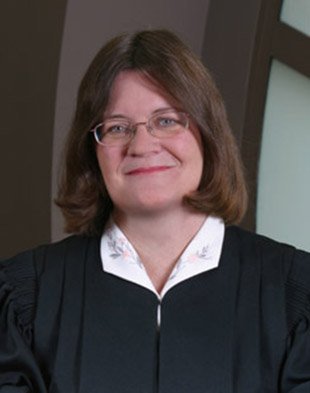Elected Member
The Hon. Laura Denvir Stith
Kansas City, MO
Supreme Court of Missouri
Tufts University, BA in political science and social psychology
Georgetown University Law Center, JD
After nearly 27 years of judicial service – including two decades on Missouri’s highest court – Judge Laura Denvir Stith retired in March 2021 from the Supreme Court of Missouri, where she was the Court’s longest-serving judge. She now serves as a senior judge for the state of Missouri, available for case assignments, committee appointments and special projects as needed.
A native of the St. Louis area, where her parents were active in civic affairs, Stith graduated with honors from John Burroughs School in St. Louis. She earned her bachelor’s degree, magna cum laude, in political science and social psychology in 1975 from Tufts University in Medford, Massachusetts, and her law degree, also magna cum laude, in 1978 from Georgetown University Law Center in Washington, D.C. She then served as a law clerk to Judge Robert E. Seiler of the Supreme Court of Missouri, where she met her husband, Donald Scott, who was clerking for another judge.
Stith then joined the Kansas City law firm of Shook, Hardy and Bacon, where she had a civil practice from 1979 to 1994. She was appointed as a judge of the Missouri Court of Appeals, Western District, where she served for more than six years before her 2001 appointment to the Supreme Court of Missouri. Stith served as Missouri’s chief justice from July 2007 through June 2009. She is only the second woman to serve on the state’s high court and as chief justice and just the fifth woman statewide ever appointed to the court of appeals.
Throughout her legal and judicial career, many of Stith’s professional activities focused on advancing legal ethics, gender and justice issues. In the community, she was the founding director of Lawyers Encouraging Academic Performance (LEAP), an inter-bar lawyers’ public service organization in Kansas City. As a senior judge, she continues her longtime work as a mentor and tutor to young students at St. Vincent’s Operation Breakthrough in Kansas City. In 2013, Missouri Lawyers Media named Stith “Woman of the Year” in recognition of her leadership, integrity, service, sacrifice and accomplishment in improving the quality of justice and exemplifying the highest ideals of the state’s legal profession.
